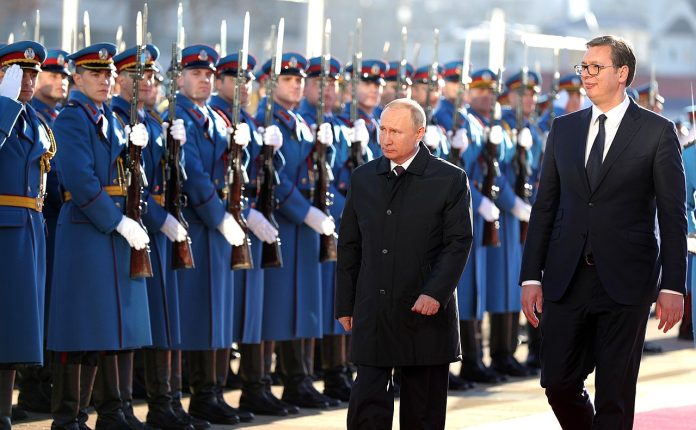MEPs call on the EU to reconsider the extent of financial assistance provided by the EU to Serbia if support for anti-democratic regimes continues.
Accession negotiations with Serbia should advance only if the country aligns with EU sanctions against Russia and makes significant progress on EU-related reforms, say MEPs in a report adopted by the Committee on Foreign Affairs on Wednesday.
The dynamics of the accession process with Serbia will be determined by progress on the rule of law and fundamental rights, functioning of democratic institutions, commitment to shared European rights and values, and on the normalisation of relations with Kosovo, say MEPs. In this context, they stress the importance of aligning with the EU’s common foreign and security policy (CFSP), especially with regards to Russia’s war of aggression against Ukraine.
MEPs note with concern that since the European Commission’s 2020 Report on Serbia was published its assessment of the overall state of play across 33 negotiating chapters has not improved and that, in 2022, the Commission did not detect “good progress” in any chapter.
Disinformation and dissemination of anti-EU rhetoric
The EU is Serbia’s main political and economic partner and by far the largest donor, stress MEPs concerned about the recent decrease in public support for EU membership in Serbia. This is a result of a long-standing anti-EU/pro-Russian political rhetoric widely spread via government-controlled media as well as by government officials and of a gross failure from the official side to face and come to terms with Serbia’s past, they say.
MEPs call on the EU to reconsider the extent of financial assistance provided by the EU to Serbia if support for anti-democratic regimes continues and call on the European Commission to ensure that all EU expenditure is fully in line with the EU’s own strategic goals and interests.
Improvements in judiciary
The report commends measures Serbia has taken to strengthen the independence of the judiciary and enhance the transparency and effectiveness of the rule of law institutions. It also commends Serbia’s good cooperation with the EU on the management of irregular migration. Noting some progress in the fight against corruption, the report stresses the fact that more demonstrable effort and political will is needed to achieve tangible results, in particular with regard to serious and organised crime.
Normalisation of relations between Serbia and Kosovo is a priority
Stressing that the normalisation of relations between Serbia and Kosovo is a priority and a precondition for both countries’ EU accession, MEPs call on both sides to demonstrate leadership and be ready to take necessary decisions that lead to progress. They urge Serbia and Kosovo to engage in the Belgrade-Pristina Dialogue in the spirit of compromise to achieve a comprehensive, legally binding agreement based on the principle of mutual recognition in accordance with international law and without further delay.
The report was adopted by 43 votes in favour, 5 against and 6 abstentions.
Rapporteur Vladimír Bilčík (EPP, Slovakia) said: “This report offers a number of critical points while supporting Serbia’s EU path to which its leaders committed after the 2022 elections. I welcome the return of the opposition to the Serbian National Assembly. To progress, Serbia must align with the EU’s external relations, continue domestic reforms and normalise relations with Pristina. If Belgrade achieves this, it will be a common European success.”
The reports will now be submitted to a vote in the European Parliament as a whole at the plenary session in May.

